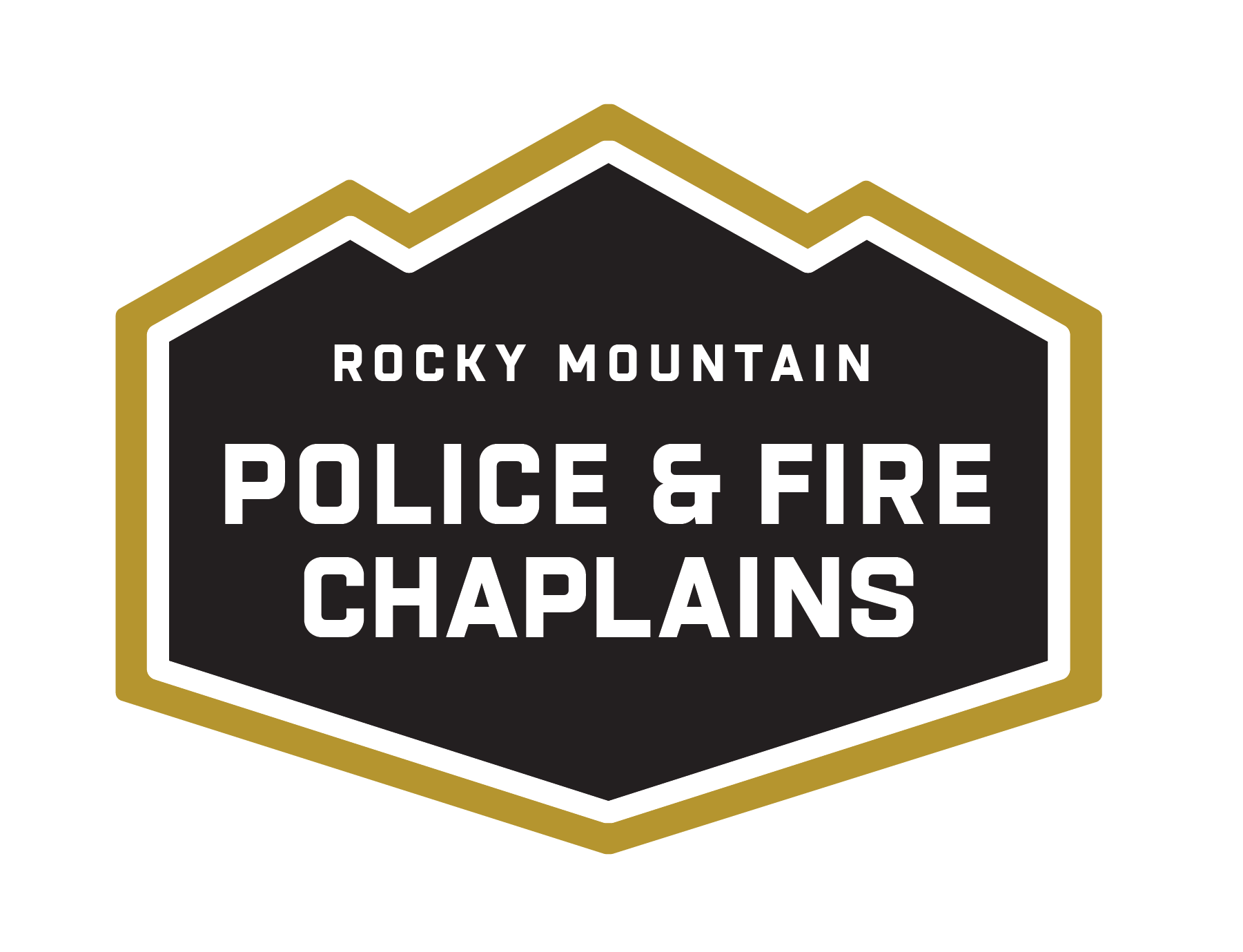Chaplain Training
Standards
Rocky Mountain Police and Fire Chaplains (RMPFC) has developed a Chaplain Training Standard. It is our desire to have excellence in training that defines training expectations as well as ongoing training levels for all Chaplains. Chaplains must be prepared for every situation and all active Chaplains should be trained to an appropriate level of competence. RMPFC offers training at least twice a year a various locations along the Colorado front range as wells provides customized trainings to meet the needs of specific agencies/chaplains that are not able to make the scheduled basic chaplain trainings. The RMPFC trainings as well as our partner trainings are listed on our events page. We also offer Partnership training opportunities that can be found here.
Basic Chaplain Training Standards (Two Day)
BCT 101 Introduction to Law Enforcement & Fire Rescue Chaplaincy
BCT 102 The Law Enforcement and Fire Rescue Family
BCT 103 Stress Management (Intro to Stress, Burnout, Compassion Fatigue, PTSD, ASD)
BCT 104 Ministry of Presence
BCT 105 VIO & Peer Support
BCT 106 Constitutional Law
BCT 107 Foundations of Chaplaincy
BCT 108 Ethics of a Chaplain
BCT 109 Moral Injury
BCT 110 Intro to Suicide Prevention (Identify, Mitigate, Respond/Report, Resources Follow-Up)
BCT 111 Line of Duty Death and Injury
Basic Police & Fire Training Standards
BPFT 201 Understanding the language of Law Enforcement and Fire Rescue
BPFT 202 Communications
BPFT 203 General Chaplain Safety
BPFT 204 Investigations – Detectives
BPFT 205 Support Services and Special Assignments
BPFT 206 Coroner/Medical Examiner Protocols (Based on Jurisdiction)
BPFT 207 Crime Scene Protocol (Based on Jurisdiction)
BPFT 301 City Policy
BPFT 302 Department Policy
BPFT 303 City Code of Conduct
BPFT 305 Attend citizens academy (if available)
ADVANCED CHAPLAIN TRAINING
ACT 401 1st Aid, CPR, AED, and Stop the Bleed
ACT 402 What Do I carry on my Belt & What Does A Go Bag Look Like for a Chaplain
ACT 403 FEMA Courses - National Incident Management System (ICS & NIMS) (IS-100, IS-200, IS-700, IS-800)
ACT 404 Incident Command - The role of a chaplain in a major crisis response environment
ACT 405 Self Defense (tactical training available through agency)
ACT 406 Traffic Stops & Chaplain Safety
ACT 407 Domestic Violence
ACT 501 Moral Injury (Advanced)
ACT 501.1 Moral Injury (Train the Trainer)
ACT 502 Debriefing a Critical Incident
ACT 503 Community Crisis Response Teams (Based on Jurisdiction)
ACT 504 Emotional Resilience
ACT 505 Advanced Stress Management
ACT 506 Advanced Suicide Study, ASIST, and SAFLEO
ACT 507 Post Traumatic Stress Injury and Cumulative Stress Injury
ACT 508 Death Notification (Based on Jurisdiction)
ADVANCED POLICE TRAINING STANDARDS
APT ` 601 Driving - attend track training (Based on Jurisdiction)
APT 602 Gun Knowledge and Safety - attend range trainings (Based on Jurisdiction)
APT 603 Taser - with demo (Based on Jurisdiction)
APT 604 Gas - with demo (Based on Jurisdiction)
APT 605 Haz-Mat (Based on Jurisdiction)
APT 606 Building Searches (Based on Jurisdiction)
APT 607 CCIC - become certified to view (Based on Jurisdiction)
ADVANCED FIRE TRAINING STANDARDS
AFT 601 Wildfire Mitigation and Response
AFT 602 EMS Certification
AFT 603 Driving - attend training
AFT 604 Fire Knowledge and Safety - attend Burn House trainings
AFT 605 Haz-Mat
